Follow Us x
Clinical
Clinical Treatment Program in Flint, MI
OUR CLINICAL TREATMENT PROGRAM
The clinical team at Whaley Children's Center's clinical treatment program provides therapeutic support for the children in our care.
THERAPEUTIC SUPPORT
Every child that resides at our Center has an assigned Master-Level therapist that they meet with a minimum of one hour a week. Our therapists use evidence-based, trauma-informed therapeutic techniques including Trauma-Focused Cognitive Behavioral Therapy, Play Therapy, The Sanctuary S.E.L.F. Curriculum, Social Thinking and SuperFlex, and Power Source Program.
- Trauma-Focused Cognitive Behavioral Therapy - Trauma-Focused Cognitive Behavioral Therapy (TF-CBT) is the most well-supported and effective psycho-social treatment model designed to treat children and adolescents who have been abused and traumatized. Extensive research has proven TF-CBT to be effective in addressing post-traumatic stress disorder, depression, anxiety, externalizing behaviors, sexualized behaviors, and feelings of shame and mistrust. The components of the model follow the acronym PRACTICE: Psychoeducation and parenting skills, Relaxation skills, Affect expression and regulation skills, Cognitive coping skills and processing, Trauma narrative, In vivo exposure (when needed), Conjoint parent-child sessions and Enhancing safety and future development. TF-CBT is generally delivered in 12-16 sessions.
- Play Therapy - Therapeutic play provides a safe, confidential, and caring environment that allows the child to play with as few or as many limits as possible for physical and emotional safety. Play and creativity operate on impulses from outside our awareness- the unconscious. Through play therapy, our children can communicate their worries, fears, and wishes through uncensored play. The therapist may reflect to a child's observations of what has happened during the session if this is felt to be appropriate. This allows the therapist to validate a child's feelings while also correcting the dysfunctional beliefs and behaviors that stem from the child's past abuse and neglect. Through play, the therapist and child can begin to change a child's worldview and create a brighter future with healthier relationships, improved social skills, and stronger coping skills.
- The Sanctuary S.E.L.F. Curriculum - S.E.L.F - This is a trauma-informed way of organizing conversations and documentation in a simple and accessible language. It is based on four concepts: Safety, Emotions, Loss, and Future which represent the four fundamental domains of disruption that occur in a traumatized person's life. Within these four domains, any problem can be categorized. Naming and categorization are the first steps in making a problem manageable. Without focusing on specific individual events, the S.E.L.F. groups address the fundamental problems surrounding exposure to violence which include difficulty staying safe, difficulty managing emotions, suffering from unresolved losses, and difficulty envisioning a positive future. Upon completion of the S.E.L.F. curriculum, the group participants have the knowledge and understanding of how to maintain their safety, regulate their emotions, accept the losses they have suffered, and envision a bright future free from the cycle of abuse and maladaptive behaviors that have often plagued their families for generations.
- Group Therapy - Groups are facilitated once a week by Behavior Specialists and Master Level Therapists. Groups follow evidence-based curriculums including S.E.L.F. and Power Source. In addition, Mindfulness exercises facilitated by our Yoga/Mindfulness Instructor are incorporated into each weekly group.
- Social Thinking and Superflex - Social Thinking is a curriculum focused on educating adolescents on mature social skills including problem-solving, emotions, different perspectives, leadership skills, and healthy friendships. Superflex introduces comic book characters to teach younger children the necessary thinking skills required to regulate behaviors. Superflex aims to help children learn social norms and increase understanding of their own behaviors in a fun and non-threatening way.
- The Power Source Program - This is an evidence-based program designed to empower at-risk youth with the social and emotional skills necessary to forge paths of healthy development and disengagement from high-risk and offending behaviors. Grounded in a belief in the intrinsic dignity and worth of each person, Power Source guides trauma-impacted adolescents and young adults in discovering their own resilience, while also building the skills associated with healthy social, emotional, and identity development. Offering a wide range of tools and resources, Power Source enables facilitators to address youth's unique socioemotional needs, risk factors, and protective factors through high-impact, engaging exercises, role plays, discussions, games, and meditations. (Source: Lionheart.org)
